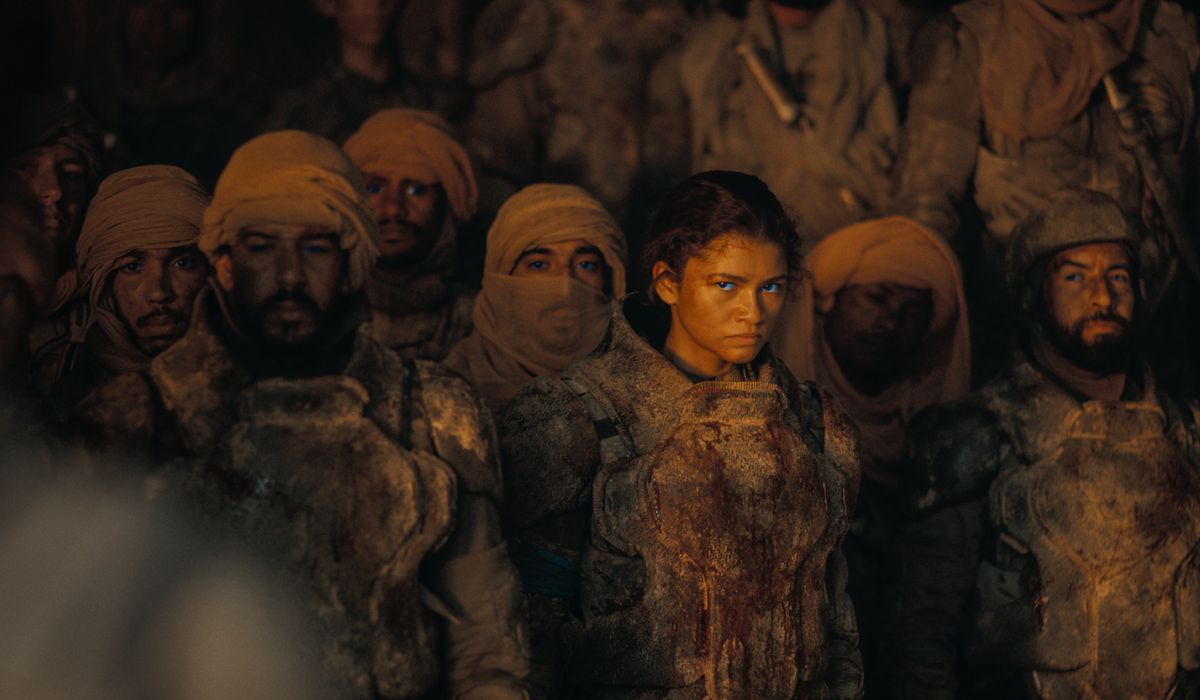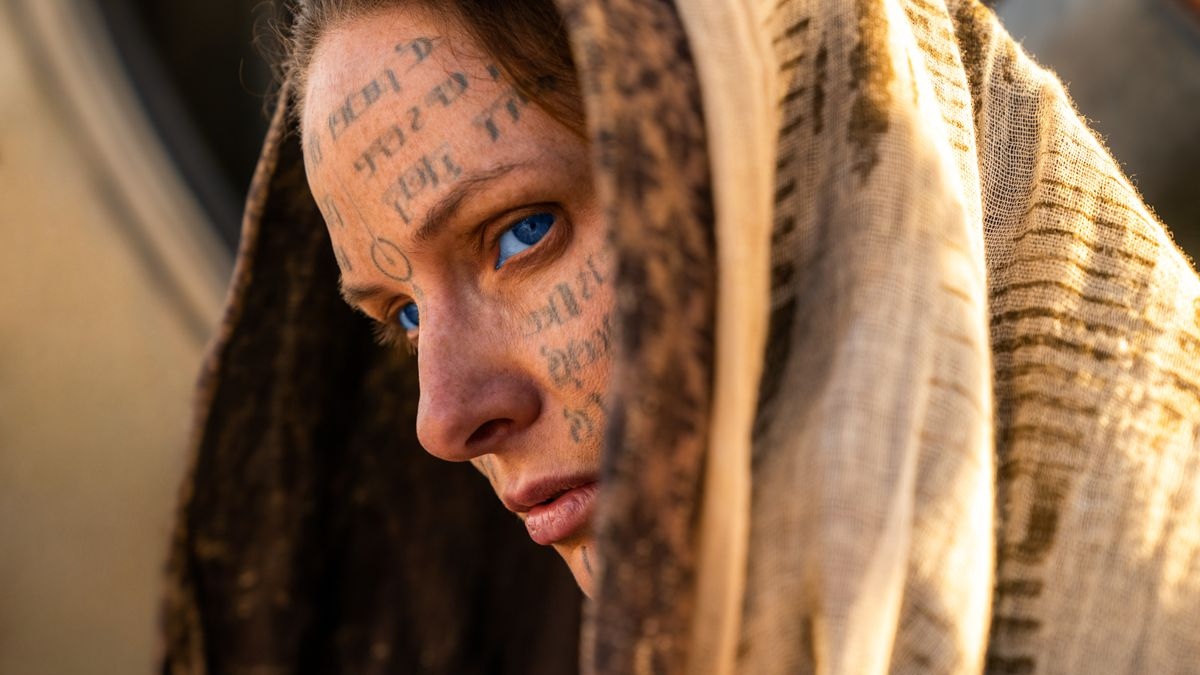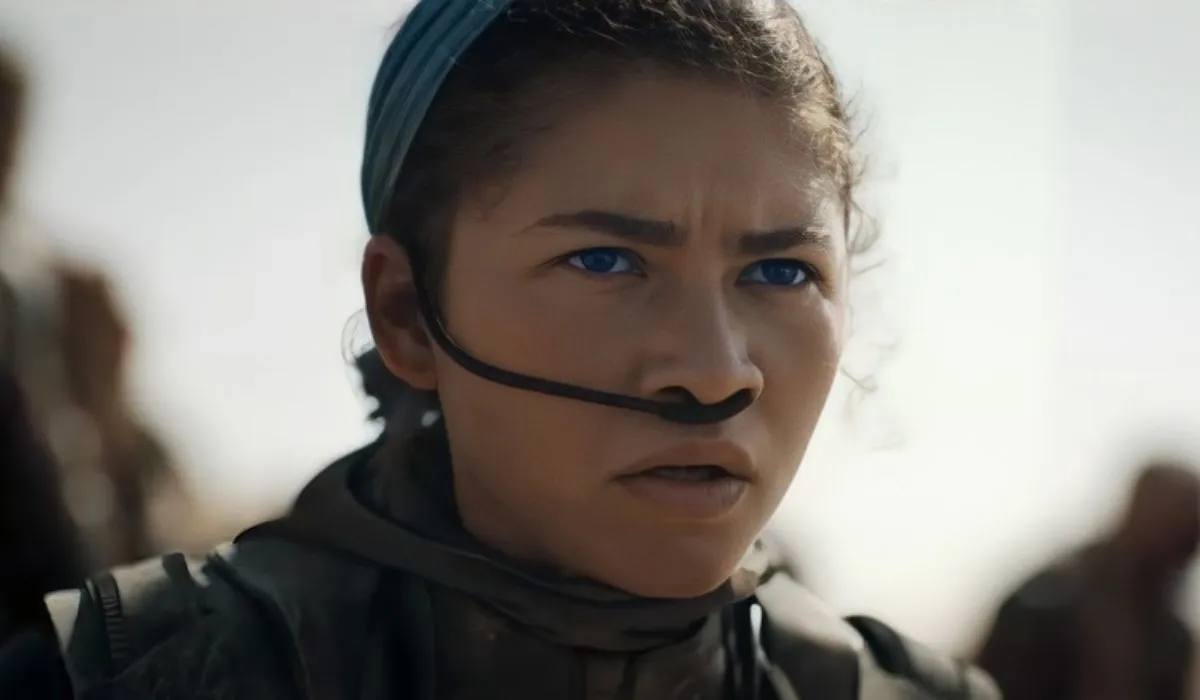‘Dune’ Is Undoubtedly Paul’s Story, but the Women in His Life Are the Real Lens Through Which We See It Play Out
Everything about this movie is designed to make me deranged, I guess.

It’s been a little more than a month since the release of Dune: Part Two—the second installment of Denis Villeneuve’s adaptation of Frank Herbert’s iconic space opera—and the film series has already lodged itself firmly in the pop culture canon. The takes have been written, the memes have been memed and of course, almost every shot of this incredible masterpiece has been analyzed by film nerds across the globe.
I, of course, count myself in the collective Dune craze that has swept the Internet. And when my local cinema announced that Dune: Part Two was ending its run, I simply had to see it for the fourth time. On my fourth viewing, I was particularly struck by how Paul’s (Timothée Chalamet) journey in both films, from a Duke’s heir to a Fremen warrior to the messiah of an intergalactic holy war, is shown through the eyes of the women in his life.
Paul is the protagonist of Dune, but that doesn’t mean he’s the story’s narrator
There’s no doubt that Dune is the story of Paul Muad’dib Atreides, Duke of Arrakis, the Lisan al Gaib (cue the viral TikTok audio). The now officially-in-development Dune Messiah will continue his story, taking place 12 years into Paul’s reign as Emperor where he continues to lead his Fremen warriors into war against the other Great Houses.
What Paul undergoes is nothing less than a hero’s journey, or more accurately, an anti-hero’s journey. Both Herbert and Villeneuve try their hardest to convey that what happens at the Fremen council in the South of Arrakis isn’t a glorious anointment in a righteous cause. Rather, it’s an act of violence over people who have been conditioned for centuries to believe their liberation would come via a powerful off-worlder.

Paul is the engine of the story, with his prophetic dreams and his quest for vengeance. But the perspectives through which we witness his movements are those of the ones who surround him—and in particular, the women in his life who are the closest ones to his ascent.
Characters like Alia and Irulan wordlessly narrate the story
These perspectives are as different as the women themselves—while Lady Jessica (Rebecca Ferguson), Chani (Zendaya), Princess Irulan (Florence Pugh), and Alia (Anya Taylor-Joy) are all involved with Paul in one way or another, their morals, goals, and opinions could not be more different.
Let’s start with Princess Irulan and Alia, who both have minor roles in Dune: Part Two (each set to expand significantly in Dune Messiah), but who are still inextricably linked with the Muad’ dib.
The unborn Alia—who briefly appears as an adult in the vision Paul has after drinking the Water of Life—is pre-born, meaning she has gained all the knowledge of a Reverend Mother in utero when Lady Jessica took the Water of Life and became a Reverend Mother herself. Throughout the movie, she advises her mother and works with her to bring about Paul’s ascension to the role of Lisan al Gaib. Alia is often puzzled by Paul’s hesitation to take advantage of the Fremen’s beliefs. To Alia, Paul is the Kwisatz Haderach, and there’s nothing and no one who should stand in his way as he climbs the steps to the imperial throne.

Then there’s Princess Irulan Corrino, the eldest daughter of Emperor Shaddam IV. I particularly loved how the movie opens with Irulan describing the events of the assault of House Atreides for her records. It’s a nod to the books, where every chapter is introduced by a passage from historical writings about Paul. Observing the rise of Maud’dib, from a mysterious Fremen warrior to the lost Duke Atreides, is most of what Irulan does for the length of Dune: Part Two.
Since she’s a trained Bene Gesserit—the Reverend Mother Gaius Helen Mohiam even describes her as one of her best students—Irulan sees how the threads of history are moving. She clocks the importance of Muad’dib to the Fremen and how that importance means he can’t be attacked directly by the Emperor’s Sardaukar. She also understands how Paul has cornered her father into accepting all his conditions—including her marriage to Paul—which puts her in the middle of an already-established relationship. To Irulan, her soon-to-be new husband is a dangerous, cunning conqueror who knows perfectly well how to wield the Bene Gesserit myths of the Lisan al Gaib to upheave the entire universe.

Chani and Lady Jessica also influence Paul’s journey
Alia and Irulan might have marginal roles in Dune: Part Two, but Lady Jessica and Chani are central to the movie’s plot—and their influences are significant on Paul, just as their images of him are well-defined and starkly different.
Lady Jessica is a fearsome figure throughout Dune: Part Two. After she becomes Sietch Tabr’s new Reverend Mother by taking the Water of Life, she and her now very conscious unborn daughter work tirelessly to solidify the Fremen’s belief in the Lisan al Gaib so that when Paul inevitably decides to step into the role he will find everything as prepared as possible. And of course, she relentlessly pushes Paul to embrace what the Bene Gesserit have laid out for him rather than continue on his initial course of being just another of the Fedaykin freedom fighters, taking part in the Fremen-led liberation of Arrakis rather than guiding it as a messiah.
One could say that Lady Jessica is one of the true instigators of the holy war, even more than Gurney Halleck and Stilgar, and that’s because she goes into it with her eyes wide open, fully aware of the consequences it will have. To Lady Jessica, her son is the tool of her revenge for the death of her beloved Leto and her victory over the Bene Gesserit—whose plans she had already disrupted by giving birth to a son rather than the daughter she was ordered to have.

And then there’s Chani. Arguably the best character in the movie and Villeneuve’s self-declared “secret weapon” in conveying Herbert’s original themes and ideas. Sure, she differs greatly from her (admittedly thin) book counterpart, but her perspective on the whole story helps deepen and contextualize just how terrible Paul’s ascent is. In Chani’s eyes, Paul goes from being an outsider whom she doesn’t particularly trust to the man she falls in love with and who seems genuinely committed to fighting with her and her people for the freedom of Arrakis. Chani is not a follower of the myth of the Lisan al Gaib and Paul’s constant rejection of that role is a decisive factor in her developing feelings for him.

Chani then watches all those promises between them disappear as Paul agrees to take the Water of Life, forcing her into fulfilling her part of the prophecy. She hears him demand the hand of a princess in marriage. She witnesses him turning her people into fanatical warriors, devoid of any personhood that isn’t blind worship, as they set off to bring the holy war to every corner of the universe. To Chani, Paul is the man who said he “will love her as long as he breathes,” sure, but he’s also the new oppressor of the Fremen and his rise isn’t a rise at all, but more like a tragic fall.
(featured image: Warner Bros. Pictures)
Have a tip we should know? [email protected]